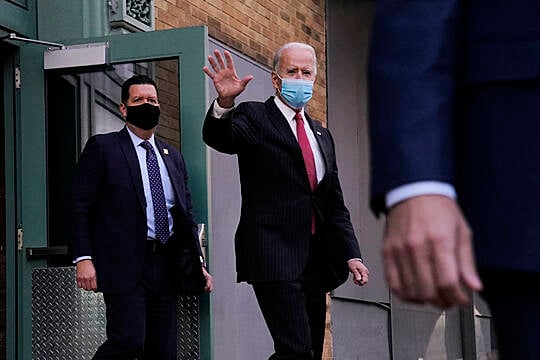US President-elect Joe Biden is moving quickly to build his incoming administration and could name top leaders for his cabinet as early as next week.
Mr Biden has told reporters he has already decided on who will lead the Treasury Department. That pick, along with his nominee for secretary of state, may be announced before Thanksgiving, according to people close to the transition.
The cabinet announcements could be released in tranches, with groups of nominees focused on a specific top area, like the economy, national security or public health, being announced at once.
Such a move is intended to deliver the message that Mr Biden is intent on preparing for the presidency even as President Donald Trump refuses to concede and attempts to subvert the election results in key states.

Mr Trump’s roadblocks have undermined core democratic principles such as the peaceful transfer of power and are especially problematic because Mr Biden will take office in January amid the worst public health crisis in more than a century.
David Marchick, director of the Centre for Presidential Transition at the non-partisan Partnership for Public Service, said: “It’s a huge impact. And each day it gets worse, meaning a week ago, it wasn’t that big of a deal. This week, it’s starting to get to be a bigger deal. Next week, it’ll be bigger.
“Every new day that’s lost has a larger impact than the day before.”
Still, Mr Biden’s transition work is progressing, with the president-elect holding frequent virtual meetings from his home in Wilmington, Delaware. At this point, Mr Biden is deeply involved in choosing his cabinet, a process described by one person as similar to fitting puzzle pieces together.
In putting together the 15-person team, Mr Biden is facing demands from multiple, competing interests, as well as the political realities of navigating a closely divided Senate.

He will have to find the right mix of nominees to appease progressives demanding evidence he has committed to major reforms; fulfil his promise to build the most diverse government in modern history; and pass through a more difficult than expected nomination process with a slim margin of control for either party, depending on the outcome of two Georgia Senate run-offs in January.







